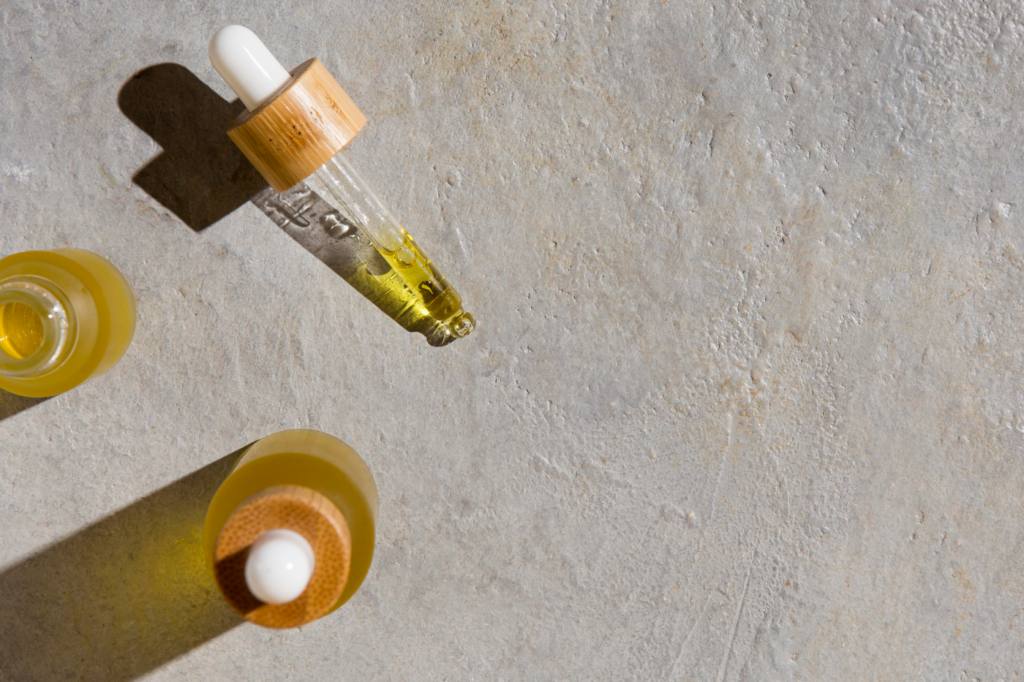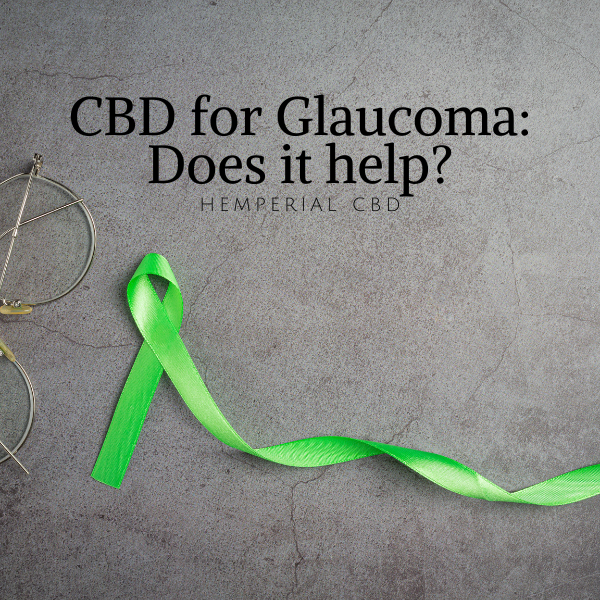Glaucoma, a progressive eye condition, is known to be one of the leading causes of irreversible blindness worldwide. Traditionally, it’s managed with various medications and sometimes surgery. However, there’s a growing interest in alternative treatments, including the use of Cannabidiol (CBD), a non-psychoactive compound derived from the cannabis plant. This article delves into the potential use of CBD for glaucoma and what current research suggests.
Understanding Glaucoma
Glaucoma, a complex eye condition that can lead to blindness, affects millions of people worldwide. This disease is marked by damage to the optic nerve, the part of the eye responsible for sending visual information from the eye to the brain. The most common form of glaucoma, known as open-angle glaucoma, is often associated with an increase in the eye’s internal pressure, also called intraocular pressure (IOP). Elevated IOP can gradually damage the optic nerve, leading to vision loss or even blindness.
There are different types of glaucoma, including open-angle glaucoma, angle-closure glaucoma, normal-tension glaucoma, and secondary glaucoma. Each type has its unique causes and characteristics but all can potentially lead to irreversible damage if not managed effectively.
Glaucoma is often a silent disease, meaning it progresses slowly and the initial stages are typically asymptomatic. However, as the disease advances, individuals may experience symptoms such as blurred vision, eye pain, redness, nausea, and seeing halos around lights.
Treatment for glaucoma usually begins with prescription eye drops and can progress to oral medications or various types of surgery, all with the goal of lowering intraocular pressure. These treatments can help slow the progression of the disease but they can’t reverse the damage that has already been done.
Given the potential severity and progressive nature of glaucoma, researchers and healthcare professionals are continually exploring new treatment avenues. One such avenue of investigation is the use of CBD for glaucoma. The question of whether CBD, a non-psychoactive cannabinoid from the cannabis plant, could be an effective tool in managing glaucoma is an intriguing one. However, it’s also a question that necessitates a careful and thorough exploration, which we’ll delve into in the coming sections.
CBD – A Brief Overview

Cannabidiol, more commonly known as CBD, is a natural compound found in the Cannabis Sativa plant, which includes both marijuana and hemp varieties. CBD is just one of the over 100 cannabinoids identified within the plant, but it has garnered significant attention due to its potential therapeutic properties and non-psychoactive nature, meaning it doesn’t cause the “high” typically associated with cannabis use.
CBD’s growing popularity in recent years can be attributed to a wealth of anecdotal reports and a growing body of scientific research suggesting its potential benefits for various health conditions. This has led to an explosion of CBD products in the market, from oils and edibles to topicals and capsules.
CBD interacts with the body’s endocannabinoid system (ECS), a complex network of receptors and neurotransmitters that regulate various physiological processes such as mood, appetite, sleep, pain perception, and immune response. The ECS is also involved in maintaining overall body homeostasis, or balance.
In the context of eye health and glaucoma, it’s interesting to note that the endocannabinoid system is active and functional in the eyes. This presence has sparked curiosity and inspired research into the potential role of cannabinoids, particularly CBD, in managing eye-related conditions, including glaucoma.
The question of CBD’s utility in glaucoma management is fascinating but complicated. On one hand, CBD’s anti-inflammatory and neuroprotective properties may seem beneficial. On the other hand, studies have presented mixed results regarding the impact of CBD on intraocular pressure, a key factor in glaucoma progression. It’s this complex scenario that makes the exploration of CBD for glaucoma so crucial. With thorough examination, we can better understand the potential benefits, risks, and mechanisms underlying the use of CBD for glaucoma.
CBD for Glaucoma and the Endocannabinoid System in the Eyes
In recent years, researchers have made strides in understanding the intriguing relationship between the endocannabinoid system (ECS) and eye health. The ECS, as mentioned earlier, plays a vital role in maintaining the body’s homeostasis and is involved in numerous physiological processes. Within the context of the eye, ECS plays a critical role in the regulation of intraocular pressure, neuroprotection, inflammation, and vascular function.
Interestingly, components of the ECS have been found in various eye structures such as the cornea, retina, and ciliary body, demonstrating its widespread impact on ocular health. This distribution has paved the way for studies into how cannabinoids like CBD may influence eye conditions like glaucoma.
To better understand the potential of CBD for glaucoma, it’s important to consider how CBD interacts with the ECS. Unlike THC, the psychoactive component of cannabis, CBD does not directly bind to the CB1 and CB2 receptors, the primary cannabinoid receptors in the ECS. Instead, CBD is thought to work by influencing other components of the ECS and interfering with the breakdown of the body’s own endocannabinoids, thereby enhancing their effects.
Potential benefits of using CBD for eye health could be linked to its anti-inflammatory, antioxidative, and neuroprotective properties. For instance, inflammation and oxidative stress are known to contribute to glaucoma, and CBD’s ability to counter these factors might offer therapeutic potential.
However, the role of CBD in intraocular pressure regulation, a critical factor in glaucoma, is complex. Some studies have shown contradictory results, making it a contentious issue that warrants further investigation. Understanding this complexity is crucial in evaluating the viability and safety of CBD for glaucoma treatment or management.
Current Research on CBD for Glaucoma
The current body of research on CBD for glaucoma presents a somewhat complex picture. Several studies have highlighted the potential benefits of cannabinoids in glaucoma management, but these benefits are typically associated with THC, the psychoactive compound in cannabis, rather than CBD. THC has been shown in certain studies to reduce intraocular pressure, a major risk factor in glaucoma. But what about CBD?
A study published in the National Library of Medicine indicated that administration of CBD could potentially increase intraocular pressure. However, a more recent study in the Journal of Glaucoma in 2006 revealed that a sublingual CBD extract spray had no significant effect on the intraocular pressure of healthy human subjects.
On the other hand, some animal studies have shown promising results. A study published in the European Journal of Pharmacology in 2004 found that CBD administration in rats reduced retinal neuron damage caused by high intraocular pressure. This suggests that CBD’s neuroprotective properties might play a role in preventing or slowing down the progression of glaucoma.
Another study published in Neural Plasticity in 2016 noted that CBD could protect retinal neurons by activating the CB2 receptor, one of the two main receptors of the endocannabinoid system, located predominantly on immune cells. This could potentially help reduce inflammation and oxidative stress in glaucoma.
Despite these findings, more research is needed to clarify CBD’s role in glaucoma treatment. The complexity of CBD’s interaction with the endocannabinoid system and its potential effect on intraocular pressure highlight the need for further comprehensive studies. Given this current state of research, it’s important for anyone considering CBD for glaucoma to consult with their healthcare provider and eye care professional.
Considerations When Using CBD for Glaucoma
As we delve into the potential of CBD for glaucoma, it’s crucial to keep in mind that while CBD holds promise in various aspects of health and wellness, it’s not a one-size-fits-all remedy. Particularly for complex conditions like glaucoma, it’s essential to weigh the benefits and potential risks before considering it as a part of your treatment plan.
One major consideration is CBD’s effect on intraocular pressure (IOP). While some cannabinoids, like THC, have demonstrated IOP-lowering effects, research has shown that CBD might not have the same impact. In fact, some studies suggest CBD could potentially increase IOP, a critical factor in glaucoma progression.
Another aspect to consider is CBD’s interaction with other medications. CBD can influence the way your body metabolizes certain drugs, potentially affecting their effectiveness or leading to adverse side effects. If you’re currently taking medication for glaucoma or any other condition, it’s important to discuss the implications of adding CBD to your regimen with your healthcare provider.
Dosage is another key factor. The right dose of CBD can vary greatly depending on individual factors such as body weight, metabolism, and the severity of the condition. There is no universally agreed-upon dosage for CBD, so it’s crucial to start with a small dose and gradually increase until you find the amount that works best for you.
Remember, CBD is not a cure for glaucoma. It should not replace conventional glaucoma treatment unless recommended by a healthcare professional. Glaucoma can lead to irreversible vision loss if not properly managed, so it’s essential to follow your eye care professional’s advice and continue regular eye examinations.
Finally, always ensure you are using high-quality CBD products. The CBD market is currently unregulated, leading to a vast quality discrepancy between products. Look for products that are third-party lab-tested, transparent about their ingredients, and have positive reviews.
In summary, while CBD holds potential for many health applications, its use for glaucoma is still under research and debate. Always consult with a healthcare professional before incorporating CBD for glaucoma into your healthcare routine.
Conclusion
As the body of research on CBD continues to grow, so too does our understanding of its potential therapeutic applications. While early findings regarding the use of CBD for glaucoma are mixed, it’s clear that further investigation is needed. Always consult with a healthcare professional before starting any new supplement regimen, especially if you’re considering CBD for glaucoma management.
This article is part of the ongoing scientific exploration and does not replace professional medical advice. Always consult with your doctor for medical guidance.
